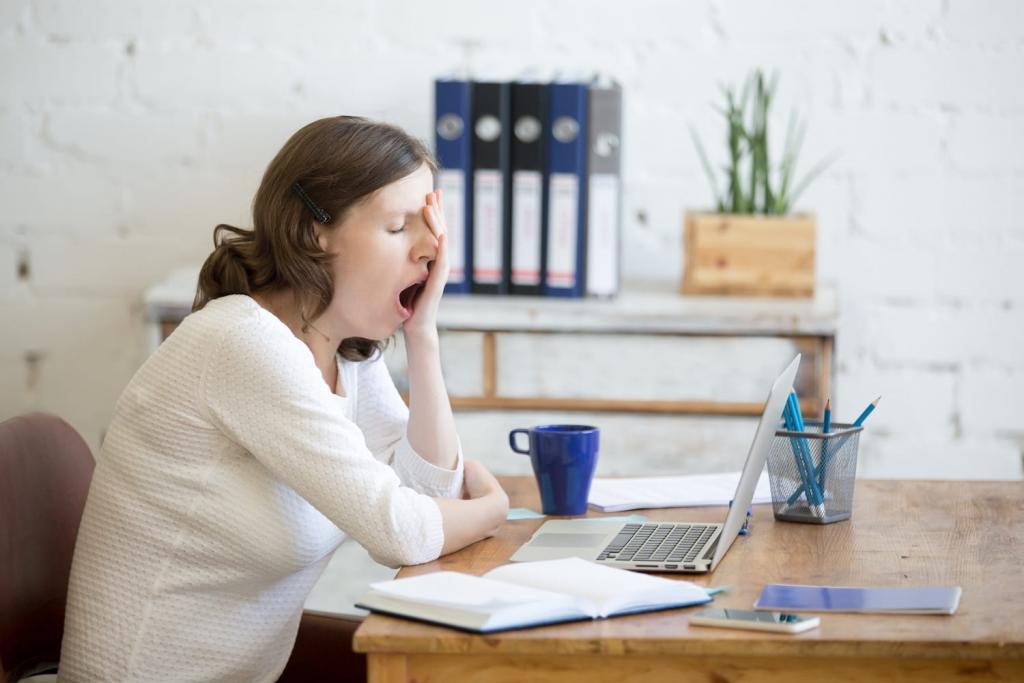You’re not alone if you’re struggling to get enough sleep at night and feeling drained during the day. Adults should sleep for seven to nine hours a night, but the CDC estimates that 35% of Americans sleep for less than that. One of the most common causes of excessive daytime sleepiness is a lack of sleep, which may impact as many as 18 percent of the American population.
This kind of sleep deprivation and daytime exhaustion can have major psychological and professional ramifications. Both physical and mental health are affected by a lack of sleep. There is a higher risk of high blood pressure, stroke, heart disease and obesity among people who don’t get enough rest at night. Additionally, they are prone to developing mental health issues such as anxiety and sadness.
As a result of extreme sleepiness at work, accidents can be more likely, which can lead to injuries or even death. Workplace productivity, task management, and goal attainment are all negatively affected by sleep deprivation.
Sleep Deprivation Impacts Safety
The human body becomes less predictable when it does not get enough sleep. Overworked personnel are 70% more likely to be engaged in workplace accidents than those who are well rested. Having just four hours of sleep has the same effect as six beers on a well-rested person.

Car accidents caused by tiredness cost between $29.2 billion and $37.9 billion, says the Institute of Medicine of the National Academies. Twenty percent of all serious car accidents are caused by driver tiredness.
What Is the Relationship Between Sleep Deprivation and Workplace Accidents?
Sleep deprivation is clearly linked to occupational accidents, as numerous studies have demonstrated. There is a 70 percent higher risk of workplace accidents among employees who are sleep-deprived. A lack of sleep and long hours at the office can both lead to an increased risk of injury on the job. When it comes to work-related accidents, workers with insomnia are far more likely to be involved than those who do not suffer from sleep difficulties.
It’s possible that these kinds of workplace mishaps will have disastrous results. The risk of workplace-related death doubled for those who reported sleep disturbances, according to a Swedish survey involving more than 50,000 workers.
Why Does Sleep Deprivation Cause Workplace Accidents?
Cognitive impairment occurs as a result of sleep loss. It affects all aspects of cognitive functioning, from memory to reflexes. Reaction time slows down when sleep deprivation increases. Decisions will be made more slowly and inaccurately, as a result of this. You’re also more prone to overestimate your own talents and take unnecessary risks as a result of this.. As a result, sleep deprivation can lead to errors and accidents that have a significant influence on the job.
Industries Where Sleepiness Impacts Safety
Sleep deprivation is a major safety concern in many businesses. Pilots, truck drivers, shift workers, and medical residents, for example, are at greater risk of making dangerous errors or missing them altogether if they are sleep deprived.
Drowsy driving can have major effects for sleep-deprived workers who have to drive as a part of their employment. Drivers who get less than seven or eight hours of sleep are 33 percent more likely to get into an accident on the road. Driving while fatigued has the same, if not worse, consequences as driving while intoxicated (BAC 0.05%). There is no legal limit for blood alcohol concentration in the United States, however several states have lower restrictions (the federal limit is.08 percent).
Workers in the healthcare industry are particularly vulnerable to the effects of fatigue on their performance, due to the fact that many of them work midnight shifts or long days. For example, a study of 100 nurses found that night shift workers made 32 percent more mathematical errors than day shift workers. Poor sleep quality and drowsiness were blamed for this.

Stories of Workplace Accidents Caused by Sleepiness
Sleep deprivation and extreme sleepiness have been implicated in a number of high-profile workplace incidents, both directly and indirectly.
- The Three Mile Island Nuclear Plant. Thirty years ago, the worst commercial nuclear plant incident ever to hit America occurred at the Three Mile Island Nuclear Plant in Pennsylvania. During the early morning shift, shift workers failed to notice a significant change in the reactor’s operating conditions, which nearly resulted in a meltdown later that day.
- Nuclear Power Plant in Chernobyl, Ukraine. Because of human mistake, the Chernobyl nuclear facility disaster began at 1:23 a.m on April 26, 1986. Afterward, it was discovered that the operators were overworked since they had been sleeping too little.
- A second nuclear power plant In the past, several nuclear reactors have suffered from sleepiness-related problems. A power outage occurred at 1:35 a.m. on the Davis-Besse Reactor in Ohio in 2002, and at 4:14 a.m. on the Rancho Seco nuclear reactor in California in 1978.
- Accident at the Exxon Valdez. The grounding of the Exxon Valdez oil tanker, which resulted in the 1989 oil disaster in Prince William Sound, was exacerbated by excessive work hours and sleep deprivation.
- Explosion of the Challenger Space Shuttle. When the Challenger Space Shuttle was launched in 1986, mistakes were made due to a lack of sleep and shift job exhaustion. Key managers had been working since 1 a.m. the day before the explosion and had only slept for two hours the night before, according to the latest accounts.
- Flight 812 of the Air India Express. Air India Flight 737, carrying 158 people, crashed in southern India in 2010. For about three hours prior to landing at around 6:30 a.m. local time, according to the official inquiry, the pilot had been asleep.
What Other Issues Does Sleep Deprivation Cause in the Workplace?
Sleep deprivation can cause a variety of problems in the job, including workplace accidents that result in harm or death.
- A vacation. Sleep deprivation costs the United States 1.23 million working days per year. Sleep-deprived workers are twice as likely to miss work as their soundly-sleeping peers.
- Mood shift. Insufficient sleep can lead to irritability, frustration, anxiety, and even depression in some people. There is a risk of inadequate teamwork and communication as a result of these changes.
- Reduced productivity. Lack of sleep impairs an employee’s ability to do their job. In comparison to their classmates, they exhibit lower concentration levels. This can have a significant influence on both individual and team productivity.
- Costs to the economy. These lost earnings due to decreased output and absences amass. Sleep deprivation-related losses cost the United States between $280 billion and $411 billion in 2015, or 1.56 to 2.28 percent of the country’s GDP, according to estimates.

Sleep deprivation and poor sleep quality have negative consequences on physical and mental well-being, both inside and outside of the workplace. There are a number of things that can be done in the office and at home to help people sleep better, improve their health, and keep them safe.
What do you think?

![Top Rated CPAP Machine Buyer’s Guide [current_date format=’m/Y’]](https://bestpillowsleepers.com/wp-content/uploads/2023/03/best-cpap-machine-img_6405d72310053-400x300.jpg)
![The 11 Best Cooling Weighted Blankets [current_date format=’m/Y’]](https://bestpillowsleepers.com/wp-content/uploads/2023/01/best-cooling-weighted-blankets-img_63d4ff15c615d-400x300.jpg)
![Ultimate Guide to Choosing a Best Cooling Mattress Pads [current_date format=’m/Y’]](https://bestpillowsleepers.com/wp-content/uploads/2023/01/best-cooling-mattress-pads-img_63c403115126b-400x300.jpg)
![Ultimate Guide to Choosing a Best Cooling Mattress [current_date format=’m/Y’]](https://bestpillowsleepers.com/wp-content/uploads/2023/01/ultimate-guide-to-choosing-a-best-cooling-mattress-img_63bcdba870d77-400x300.jpg)
![Ultimate Guide to Choosing a Best Cooling Comforters [current_date format=’m/Y’]](https://bestpillowsleepers.com/wp-content/uploads/2023/01/ultimate-guide-to-choosing-a-best-cooling-comforters-img_63bba2f5cd3ce-400x300.jpg)